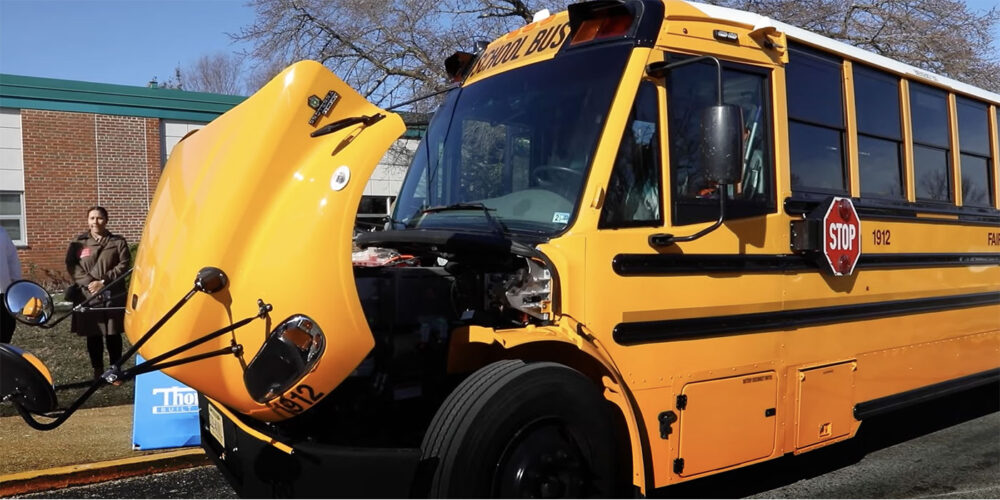
GreenPower Motor Company (GreenPower) announced the results from its all-electric school bus pilot program conducted in West Virginia that resulted in subsequent all-electric school bus orders. GreenPower shared its findings along with data to improve future deployments at the Green Bus Summit held during STN EXPO in Reno, Nevada this summer.
As a result of the pilot program and the performance of the GreenPower vehicles, schools in the Mountain State have placed orders to purchase GreenPower all-electric, purpose-built school buses to deploy in their fleets, and have also asked to receive GreenPower school buses purchased by the state. Several of the pilot program counties have applied for new funding through the EPA and other sources to purchase additional GreenPower school buses as well.
The nine-month pilot program covered more than 32,000 miles in 18 counties representing one-third of the school districts in the state. More than 100 professional school bus drivers drove the GreenPower Type D Beast and Type A Nano Beast during the pilot and provided feedback and recommendations after each round.
Each participating school district piloted either the Type D Beast or the Type A Nano Beast purpose-built, all-electric school bus for six weeks between September 2022 and May 2023, covering the entire school year, multiple seasons and some of the harshest weather and terrain the Mountain State has to offer, GreenPower said.
According to GreenPower, key findings from the pilot project included:
- In ideal conditions, the range for the all-electric school buses was 1.4 to 1.5 miles per 1% charge, or 140 to 150 miles on a full charge. On one occasion, a Beast achieved 1.67 miles per 1% charge or 167 miles total range. Another high performance saw a Beast go 147 total miles including 9% inclines on mountainous roads on a 15-degree day while returning with 7% battery remaining.
- School districts participating in the pilot were able to demonstrate significant operational savings over a fleet of standard diesel-fueled buses. One participating district, Boone County, took into account the recorded difference in just fuel costs – $200 a month in electricity vs. $900 a month in diesel fuel – which would translate into fuel savings of $136,000 over 10 years. In reality and practice the total savings for an all-electric school bus is much greater when including all operational and maintenance cost savings.
- Aggressive usage of heat reduces the range. The data shows that aggressive use of heat on extremely cold mornings reduced the range in some cases by more than 30%. Conversely, air conditioning use did not show a material impact on range.
- Changes in elevation did not significantly affect the vehicle’s range. While uphill driving will deplete the battery faster than flat terrain, downhill segments restore energy to the battery through regenerative braking so the two tend to average out. One county, Grant County, experienced a net zero energy use over a 17-mile stretch going up and down from Mt. Storm.
- Driver habits affect the range just like it does gas mileage in a personal car.
- All vehicles were charged with temporary Level 2 chargers provided by a number of vendors. While Level 2 charging proved to be largely adequate for this pilot, cold weather and other conditions suggested DC Fast Charging is necessary as a context-based option. Reporting software proved to be critical in instances where any charging interruptions took place overnight. The software provided notifications when power surges or other disruptions occurred, allowing them to be recycled in a timely manner so the problem would not be long-term, the company said.
Read the full article here



